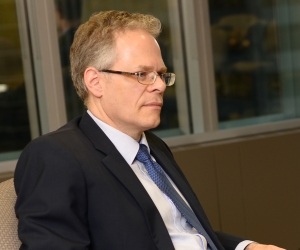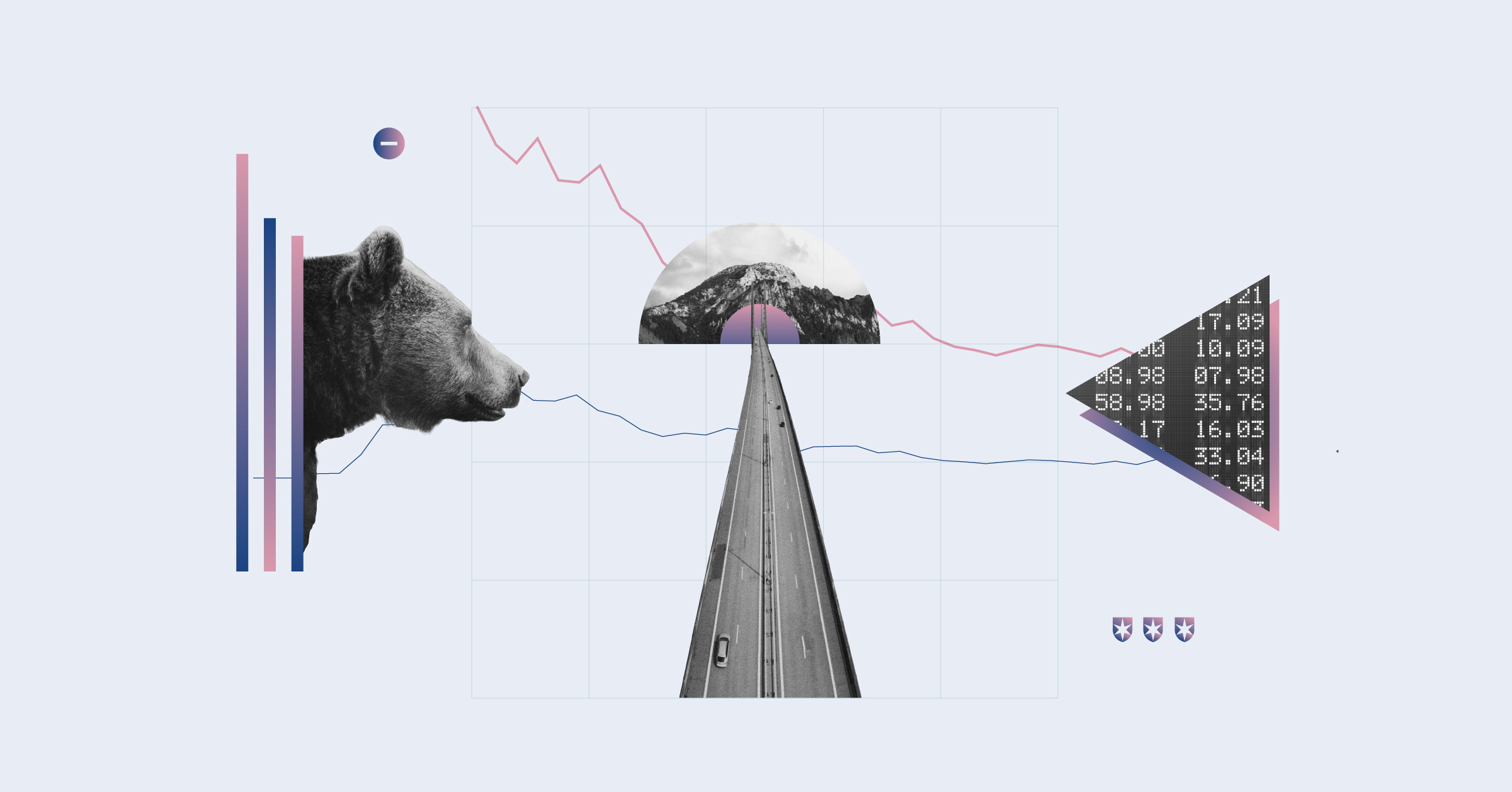Peter Moeschter, executive vice-president and portfolio manager with the Templeton Global Equity Group at Franklin Templeton Investments, says that European economic growth has finally caught up with that of the United States, but equity valuations in Europe have not.
"Recent valuation metrics, whether it be a price/earnings multiple or a price-to-book-value multiple, confirm that developed Europe equities trade at lower valuations than their U.S. counterparts."
Therein lies the opportunity, says Moeschter. "There is still more upside in European economic growth and the stock market." But there is a need to be cautious, he adds, as not everything in the European equity market is as cheap as it had been for a number of years.
A traditional value manager, Templeton combs the global equity market for bargains. Its well-honed discipline is to assess the financial prospects of a company over the next three to five years, and not to overpay for those prospects.
At Templeton, Moeschter, who has been with the firm for more than 20 years, is responsible for global and EAFE (Europe, Australasia and the Far East) portfolios for institutional and retail clients.
In 2017, the MSCI Europe Index, which covers 15 developed markets across Europe, produced a total return of 26% in U.S.-dollar terms, and the MSCI EAFE Index's total return was 25%, also in U.S. dollars. (The latter covers developed countries around the world excluding Canada and the United States.) Both these indexes outperformed the benchmark world index for developed countries: the MSCI World Index. This index reported a total return of 23% in U.S.-dollar terms in 2017.
Of the European macroeconomic backdrop, Moeschter notes that in 2017 the eurozone economy expanded at its fastest pace in a decade. "Last year, the 19 countries that have adopted this common currency produced an increase in gross domestic product of 2.5% versus the 2.3% increase in the United States."
In contrast to the trend in continental Europe, economic growth in the United Kingdom has been fairly sluggish, says Moeschter. There is still, he notes, a question mark as to the form that Brexit, the UK's exit from the European Union, might take. "While this uncertainty has slowed UK economic growth, it is not in continental Europe's interest to sign a bilateral trade deal with the UK that is overly punitive to the latter."
On the European political front, Moeschter notes that contrary to earlier fears about a marked shift to the extreme right across Europe, some key European developed countries like Germany, France and the Netherlands have elected fairly mainstream governments. "Still, there are concerns in a number of countries about the challenges posed by the flood of migrants and refugees and this is helping to boost the prospects of far-right parties in those countries."
In addition to being positive about equity investment prospects in Europe, Moeschter is fairly enthusiastic about opportunities in Asia. "These economies are on a roll," he says. "Even Japan, which is the world's third largest economy, has been expanding at a steady pace, after years of lacklustre performance."
 |
|
 |
|
| Peter Moeschter | |
 |
|
 |
|
 |
Looking at stock valuations, Moeschter notes that the equity markets in developed Asia -- Hong Kong, Japan and Singapore -- are trading at significantly lower valuation multiples than is the case in both the United States and Europe.
Moeschter's EAFE mandates include sizeable holdings in Asia. For example, Templeton International Stock, for which Moeschter has been lead manager since February 2017, has more than 30% in this region. This weighting, he says, includes emerging Asia.
The fund, which has about 60 names, is predominantly a developed-markets fund, "but it can also have a component of emerging-markets stocks." At recent count, these represented about 12% of the portfolio, with a focus on China. The portfolio has more than 60% in Europe. The MSCI EAFE Index is the fund's benchmark.
When it comes to sectors, Templeton International Stock has significant weightings in financials, health care, information technology and energy. The latter is a significant overweight position, says Moeschter.
An energy-services company in the portfolio that Moeschter sees as a means of participating in the long-term development of the global oil and gas industry is ![]() Tenaris S.A., which has an American Depository Receipt and trades on the New York Stock Exchange under the ticker TS.
Tenaris S.A., which has an American Depository Receipt and trades on the New York Stock Exchange under the ticker TS.
Based in Luxembourg, Tenaris is a major global manufacturer of steel pipe for the energy sector. It also supplies the petrochemical industry. Almost half of its business is in North America, says Moeschter. "Tenaris has good exposure to the prolific U.S. shale producers." South America, the Middle East and Africa are also important markets for its products, he says. Backing the company's global reach are strong financials, Moeschter says.
The largest holding in the fund is the integrated energy giant ![]() Royal Dutch Shell PLC, which has two classes of shares that trade in New York, RDS.A and RDS.B. "Royal Dutch Shell is a long-term holding in Templeton International Stock," says Moeschter.
Royal Dutch Shell PLC, which has two classes of shares that trade in New York, RDS.A and RDS.B. "Royal Dutch Shell is a long-term holding in Templeton International Stock," says Moeschter.
The company has digested its major acquisition in early 2016 of BG Group PLC, for which it paid US$52 billion. Royal Dutch Shell, he says, has since become more disciplined in its capital allocation and more efficient in its operations, he says. "The company is also benefitting from the improving global oil price."
| Royal Dutch Shell PLC Class A | Tenaris S.A. | |
 |
||
| March 5 close | $63.59 | $35.42 |
 |
||
| 52-week high/low | $72.43-$50.32 | $36.34-$25.91 |
 |
||
| Market cap | $267.8 billion | $20.9 billion |
 |
||
| Total % return 1Y* | 28.4 | 11.0 |
 |
||
| Total % return 3Y* | 6.3 | 9.9 |
 |
||
| Total % return 5Y* | 4.3 | -0.3 |
 |
||
 |
||
| *As of March 5, 2018. All figures in U.S. dollars Source: Morningstar |
||
In the utilities sector, Moeschter highlights two companies that have distinct niches and are major players in their field. They are: Orsted A/S, based in Denmark, and Veolia Environnement SA, based in France.
Orsted is the world's largest developer and operator of offshore wind farms. "Its decades of experience has given it a strong competitive advantage," says Moeschter. Its projects have been focused on Northern Europe, where governments in countries like Denmark, Germany and the UK have been promoting offshore wind projects.
Moeschter says Orsted is also exploring the potential in other markets, including in North America and parts of Asia. The stock was an initial public offering in 2016 and has performed well since, he says. "But we feel that new expansion opportunities will continue to drive growth."
Veolia manages municipal water plants, which provide water for homes and businesses. Its other services include managing waste collection and recycling for both industry and government. "The company has successfully undertaken a major restructuring over the past five years," says Moeschter. "The stock is reasonably priced."
A Japanese retailer that has "significant global expansion potential" is Ryohin Keikaku Co. Ltd. This company offers a range of clothing and household products, which are minimalist in design, under the brand name MUJI.
With a strong presence in Japan, the retailer is doing well in China and other parts of Asia, says Moeschter. "It is also establishing a presence in the United States and Canada, as well as in Europe." In all, the company has good growth prospects and the stock is reasonably priced, he says.
Moeschter has reduced the portfolio's holding in Glencore PLC, the Anglo-Swiss multinational commodity trading and mining company headquartered in Switzerland. "We bought the stock about three years ago, when the company had over-expanded, had a stretched balance sheet and was faced with weak commodity prices."
Glencore addressed its financial challenges by raising equity and cutting costs and commodity prices have improved, says Moeschter. "The stock responded and has done well in the last two years."
















